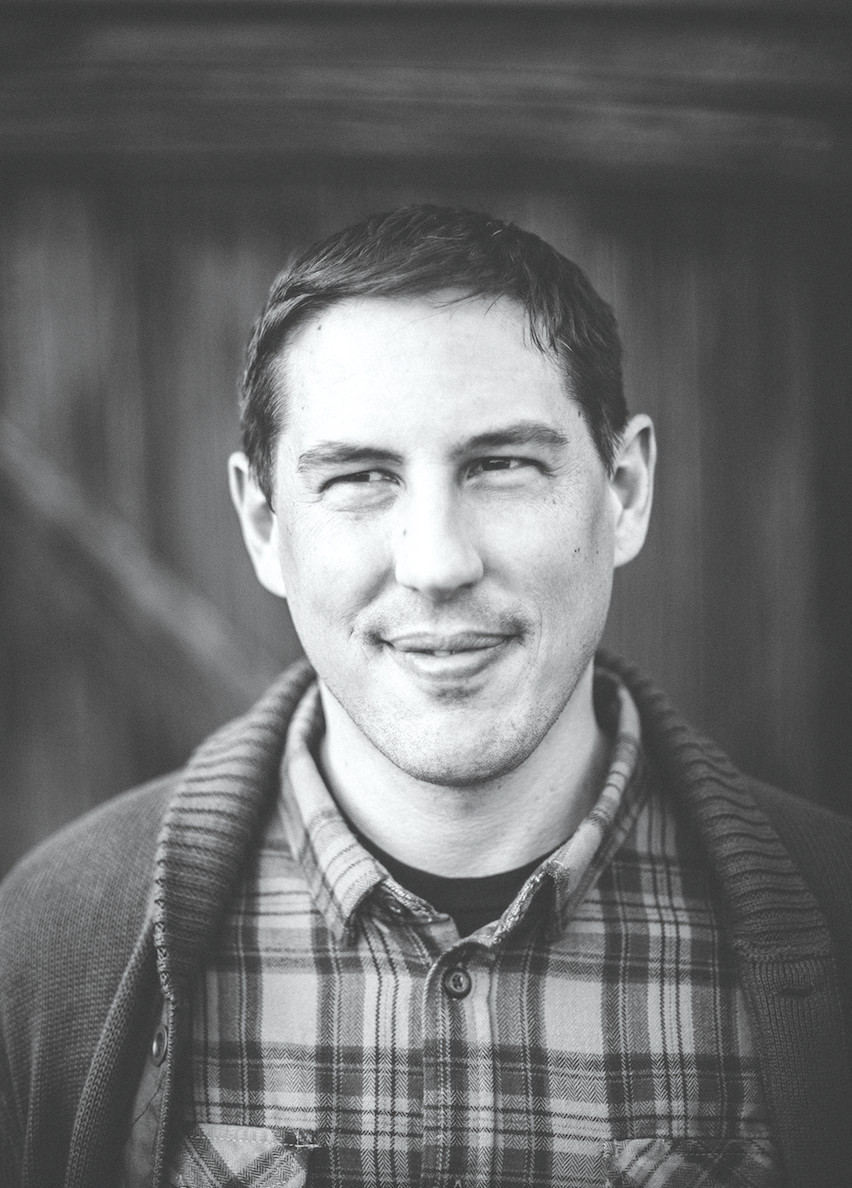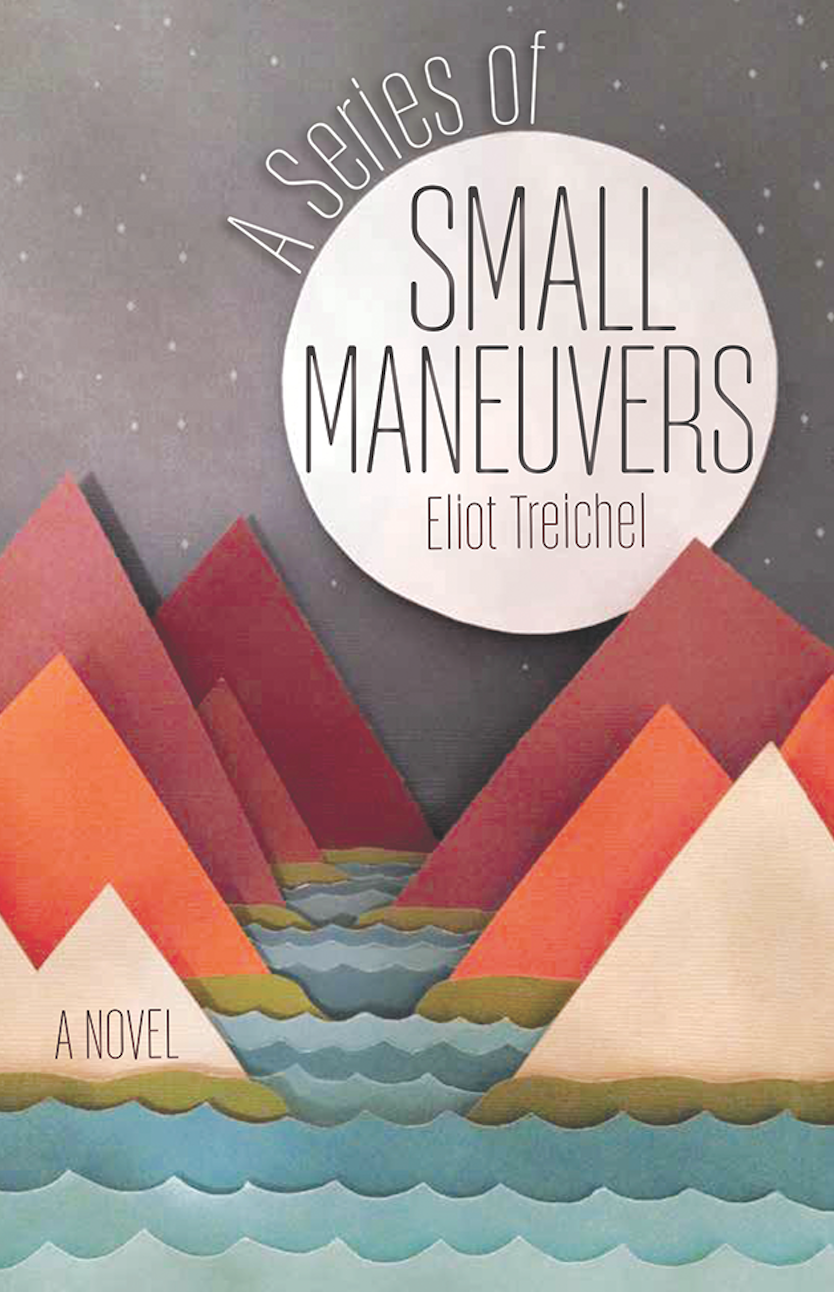Oregon writer Eliot Treichel


Oregon Book Award finalist Eliot Treichel weaves young adult literature with small-town, dirty realism to create compelling results. His first book, Close Is Fine, is a gritty collection of short stories steeped in Midwestern sincerity while delivering raw punchlines at the expense of men living along Wisconsin highways. In A Series of Small Maneuvers, Treichel embraces the Y.A. novel by rejecting the geography, gender and genre arrangements of his essays, and he explores the grief of a young girl after losing her father.
Still, don’t let Small Maneuvers’ Y.A. tag fool you. Treichel’s latest work carries over the same honest-to-god storytelling and realism found in Close Is Fine, but it shows what he can do with a higher page count. Keep an eye on Treichel. His next maneuver will land, and it will be big.
Eleven: I’ll start by asking you about Close Is Fine, a gritty collection of short stories that won the Wisconsin Library Association Literary Award. How did that collection materialize?
Eliot Treichel: The title comes from a piece of dialogue I overheard while on a construction site. At the time, I’d been working on the collection for several years. I was struggling to find the thread that connected all the pieces together, and when I heard “close is fine,” I knew that would be the title. All the stories in that collection are about men, who strive for greatness but come up short, or who, despite intentions of kindness and love, still manage to fuck everything up. Those are stories about lives that don’t go as planned, but they must go on. While the stories were shaped by a number of things, including events in my own life, the primary influence has to do with a sense of place. If you look at a map of Wisconsin and find where Highways 55 and 64 intersect, that is the area I was trying to write about.
11: Congratulations on becoming recognized for the Leslie Bradshaw Award for Young Adult Literature (from the Oregon Book Awards). What does this recognition mean for A Series of Small Maneuvers?
ET: Thanks. I believe in this book, and it feels affirming to get some critical recognition for it, in part, because many people initially passed on it. It means a lot for Ooligan Press, who took a risk with my book, and they worked their butts off. I’m so grateful to them, and their editors, so they should share in this too. Overall, I hope this will lead more people to discover Ooligan Press, not only for their books, but also for the stellar people coming out of the program. This whole thing has also made my mom really stoked.
11: Small Maneuvers has received other positive critical reception. Melanie Bishop of The Huffington Post wrote, “I’d go so far as to say [A Series of Small Maneuvers] is one of the best books I’ve read this year, in any genre,” and Publishers Weekly gave it a starred review. Additionally, it won the Reading the West Award. How does this success translate to your work as a writer?
ET: Those are tough questions to answer. I’m very grateful for, and humbled by, the acknowledgments that A Series of Small Maneuvers has received. I can’t say that they don’t matter, because they do. At the same time, I think there is sometimes a sense that these kinds of successes will automatically parlay into something larger, career-wise, or that they’ll provide a kind of everlasting Kryptonite to self-doubt.
The truth of the matter is that the work of the writer is to write, and great reviews or awards don’t change that. I have a quote from Cheryl Strayed clipped to the lamp on my desk, which reads, “Your cause is to write a great book and then to write another great book and to keep writing them for as long as you can. That is your only cause.” It’s there as a reminder, so I can turn to it when I get caught up in the other stuff. I should also say that right behind that quote is another piece of paper, which reads, “Be a bestseller.”
11: Did Small Maneuvers accomplish what you set out for it to do?
ET: I’ll say yes—but also no. What matters most—besides just doing the work—is if the book resonates with people. For the most part, when people pick up Small Maneuvers, I want it to resonate with them. That’s the main thing: just getting the book in people’s hands.

11: This might be a good time to ask about your transition from writing short stories to becoming a Y.A. novelist. Was there an intentional move to pursue Y.A. literature after releasing your collection of short stories?
ET: The shift to Y.A. was intentional. In part, it came from wanting to try something different—something far removed from the “guy” stories in Close Is Fine. At the same time, I was too intimidated to take on a big literary novel. I think I’d just read Denis Johnson’s Tree of Smoke, and was like, “Yeah, I don’t have the chops for that.” Additionally, my daughter was reading a lot of Y.A. while I was working at the public library in Eugene. It seemed like the Y.A. section was the most lively and interesting, so I headed in that direction.
11: A Series of Small Maneuvers is characteristically Y.A., but Emma’s story carries over some of the same themes (death, maturity, loss, family) found in Close Is Fine. It also retains that collection’s sense of realism. Can you talk about writing a Y.A. book that doesn’t lock itself into the typical genre molds or gender stereotypes?
ET: Overall, I read very little Y.A. during the early drafts of the novel. That was a conscious decision. And that realism you mention is kind of the only way I know how to write, at least for now. Several people have told me that the novel isn’t really Y.A, and one bookseller who loves the book doesn’t even shelve it in the Y.A section of her store.
One of the things that bothered me about many of the Y.A. books I was bringing home for my daughter, even the critically acclaimed ones, was that they had this overriding theme of boy saves girl, or love interest saves girl. It made me want to gag. As far as my approach to Emma’s character goes, it took a while before I found her voice, and I did think a lot about gender molds. After that, it was just a matter of getting out of the way and listening to her. I’ve talked elsewhere about how my decision to put her on a river trip helped me hear her better, because I knew that world so well. The horse stuff was harder. I think Emma is a real badass.
11: I read where you told Eugene Weekly that writing about Emma’s grief “broke [you] open pretty hard.” Could you expand on that quote?
ET: I wrote the first full draft of the novel at a month-long residency in Eastern Oregon, next to a dry lakebed. I specifically sought out that residency so I could mirror Emma’s isolation—at least to a small degree. There was no real cell service out there, and no Wi-Fi. The size of the solitude and quietness, while reinvigorating, was also tough to withstand. I missed my family, pets, missed my home, and I missed the things that could distract me from my own thoughts. It went beyond emotions and became physical.
As I wrote, I began to realize that the novel was more than just an adventure story—it was really a story about grief. I didn’t necessarily have a personal experience to draw from, and I was constantly worried about coming off as a fraud. But because I thought about Emma and her loss so much over that month—and her mom and her sister’s too—I think that her grief rubbed off on me, which cast me under a sort of grief spell. That book broke me open, and I think it was a good thing. I feel stronger and happier now.
11: Will your next work be a continuation of the Small Maneuvers formula? Or will you return to the realism of Close is Fine?
ET: I hope it’s a bit of both. The project I’m working on now feels like a mashup of my two books. At the same time, I hope my voice and range keep expanding, and that I might begin writing in some other styles. For me, writing a novel is exhausting in how much patience it takes. I’m sure I’ll always write stories and essays to break that up.
When I started working on my current project, which is another Y.A. novel, I found that reading so much Y.A. messed me up quite a bit. I began thinking too much about genre, and I began thinking too much about the Y.A. label, which wasn’t working. It was, to borrow a phrase from Scott Rice, “driven by all the wrong drivers.” It took reading a bunch of poetry collections to get things rolling again. Now I’m back to listening to what my characters have to say. I like where things are going.
11: Now that you are out of Wisconsin, how are you connecting with Oregon’s literary community?
ET: There are so many wonderful organizations—Literary Arts, Oregon Arts Commission, PLAYA, Fishtrap, to name a few—that have helped me. It’s through them that I’ve connected to the Oregon literary community the most. Plus, there are all of our wonderful independent bookstores. That’s one thing that A Series of Small Maneuvers has provided—a chance to visit so many awesome bookstores and to meet so many booksellers. And librarians. God bless the librarians.»
– Morgan Nicholson



